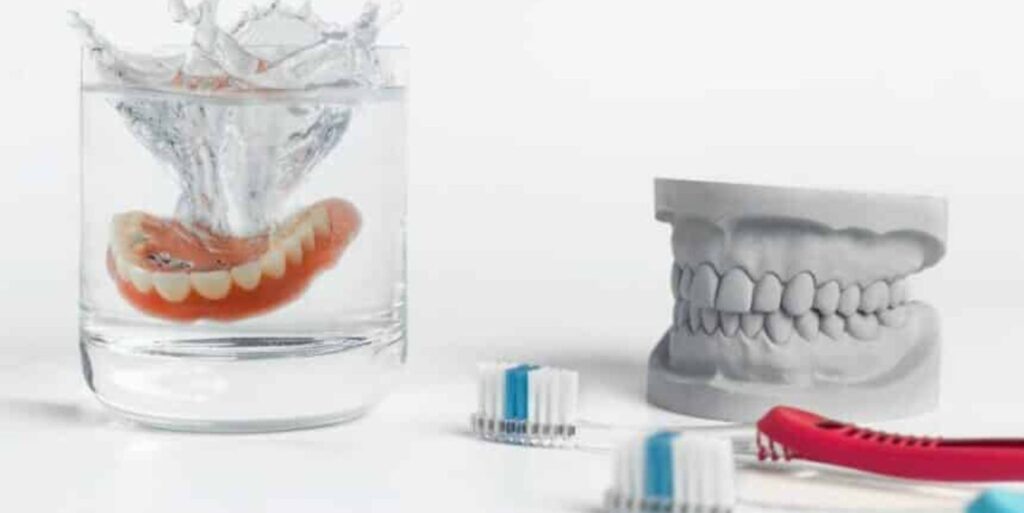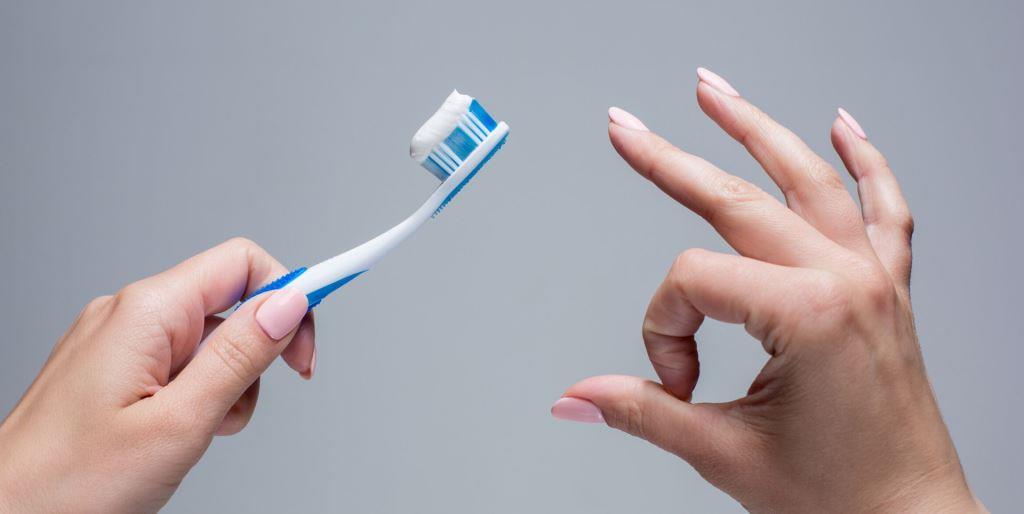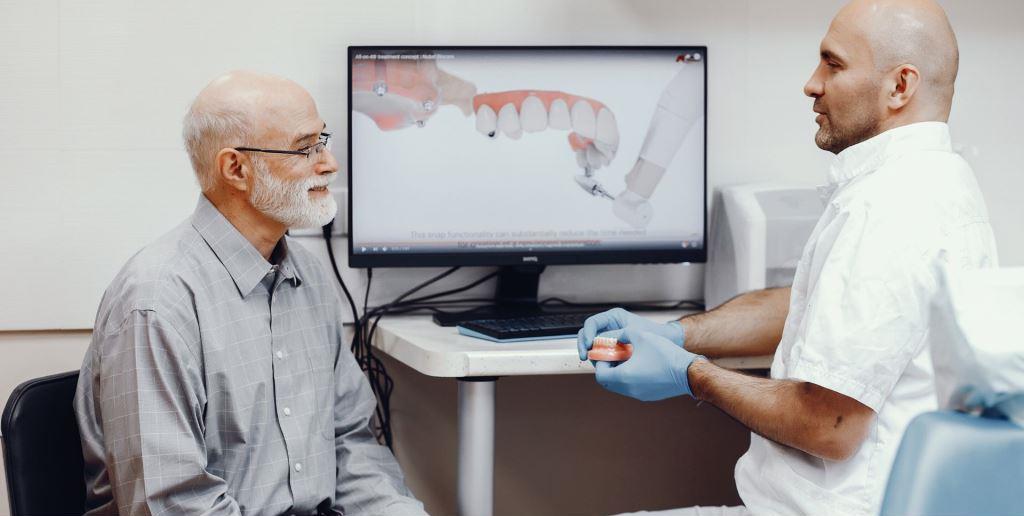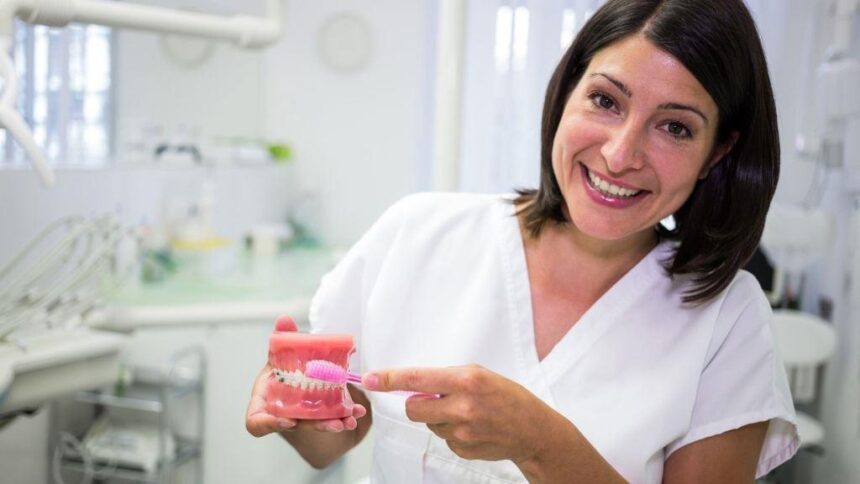Dentures require the same care as permanent teeth. You need to clean your dentures regularly and in the right way to ensure that they will last a long time. But that's not all - poor hygiene can lead to the growth of bacteria and thus various diseases! So what should you do? How often? Read our article!
What do I clean my dentures with? Learn about care products
Before we introduce you to any specifics with which you can clean your dentures, we will remind you of one thing. First of all, consult your prosthodontist, who will be able to advise you best. Cleaning products can vary depending on the denture material. Read our article: Dentures in the UK - types and prices.
And now - check out what to clean your dentures with.

Tablets and liquids
Denture cleaning tablets and liquids are one of the more popular solutions, as they remove water-insoluble soiling without any effort on the part of the patient.
What's more, they kill the bacteria that cause unpleasant odours from the mouth. How to use them? Simply dissolve the tablet (or a small amount of liquid) in warm but not hot water. Place the denture in the solution for as long as the manufacturer's leaflet instructs.
After removing the denture, rinse it under running water. And you're done!
Brushes
Brushes, on the other hand, are a staple when it comes to caring for your dentures and keeping them clean. They will help you remove dirt without damaging the denture shell. However, remember to handle them quite gently!
Double-sided brushes allow you to clean and teethand attachment layer. Remember to use them after every meal - this way you are able to prevent the growth of bacteria.
With a toothbrush you can remove plaque and stains, and get rid of food debris from even the hardest-to-reach places! So if you are looking for an answer to the question "what should I use to clean my dentures?", a toothbrush should be your first purchase!

Paste
What do I clean my dentures with? Of course, in addition to a special toothbrush you will also need toothpaste. However, beware of "ordinary" toothpaste - choose the one designed for prosthetic fillings. Why? The reason is simple. The denture structure is more delicate than the teeth. Therefore, the substances found in ordinary toothpaste can scratch and even damage the denture.
There are also 2-in-1 pastes on the market - good for cleaning both dentures and teeth.
Washers help you clean dentures
Denture cleaners are a slightly bigger expense, but in our opinion, worth every penny! They work by means of ultrasound or vibration, so you'll be able to remove food debris, sediment, limescale and other dirt in minutes.
This small device with a tank of cleaning fluid is one of the most convenient solutions when it comes to denture cleaning!
So if you want to make sure you clean your dentures properly - consider buying a washer!
How do I clean my dentures? First of all - regularly!
It is not enough to know what to clean your dentures with. Regularity is important, if not more important! Remember - it is best to clean your dentures at least twice a day, and preferably after every meal.
There are a few other principles you should follow. Among other things, remove your dentures overnight and keep them in a special container (forget the glass of water!). You can read more about this in our article: "How to care for dentures - 5 basic rules".

Prosthetic treatment in the UK
If you are just considering prosthetic treatment in the UK, we invite you to read our article: "Polish prosthodontist in the UK - when is it worth making an appointment, what does it look like and how much does it cost?".
Many people who live in the UK think that treatment in Poland is much cheaper. This is often not true - as you have to add to the cost of treatment the money spent on plane tickets and several other factors.
We therefore encourage you to visit our practice. At your first visit, we will provide you with a treatment plan and cost estimate. You can also benefit from convenient, interest-free instalments. Read more on this topic: "Teeth on credit: dental treatment on hire purchase".
Need more information on prosthetic treatment? Read also: "Prosthetic treatment in the UK - everything you need to know".

